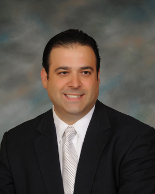Trusts are fictional entities created when a person declares a trustee to have a certain responsibility to handle some property a certain way. The person who makes a trust is called a settlor. The settlor can name him or herself or another to act as trustee. A trust can provide for a level of subtlety and complexity for handling property that is would be burdensome or overly complicated under normal court supervision. Trusts then can act both as will-substitutes in a decedent’s estate, but also as a vehicle to help hold property during a person’s lifetime. A lifetime trust can help plan for incapacity or address problems specific to a certain kind of property.
Trusts may also provide various forms of asset protection from creditors, both for settlors and for beneficiaries, depending on the situation and what risks may be of concern to clients.
One example of a lifetime trust that may be establish to address problems specific to a certain form of property is the “gun trust” by which a trustee is empowered to own, possess, and dispose of firearms with certain legal issues in mind. Such trusts may and often do address the issues that come up for National Firearms Act weapons, those guns and accessories that may be lawfully owned with certain appropriate licensing through the federal government such as machine guns, suppressors, short barreled rifles, short barreled shotguns, and destructive devices. There’s other special purpose trusts such as “land trusts.” Special purpose trusts often are generated without lawyers. A persons takes their own risks in doing so.
In the late 90s, “revocable trusts” were much more common due to the impact of the federal estate tax, which since then was elevated to a higher level such that it no longer impacts most people, indeed, very few. We still are available to prepare revocable trusts if the effort is indicated from the circumstances and the client is suitable. Certainly since other non-probate transfer methods have proliferated, such as the “Transfer on Death Deed” means for land in Indiana, trusts are less commonplace than once they were in the past. The overall process of “estate planning” with a qualified lawyer such as Timothy E. Kalamaros will aid the client in making good choices about how to accomplish his or her goals efficiently and effectively, with all relevant factors have been considered.
This website is for informational purposes. All contacts are subject to firm approval as clients, and no legal representation exists by use of this website. Circular 230 Disclosure: any U.S. tax advice contained in this communication is not intended or written to be used, and cannot be used, for the purpose of (i) avoiding penalties under the Internal Revenue Code, or (ii) promoting, marketing or recommending to another party any matters addressed herein.




